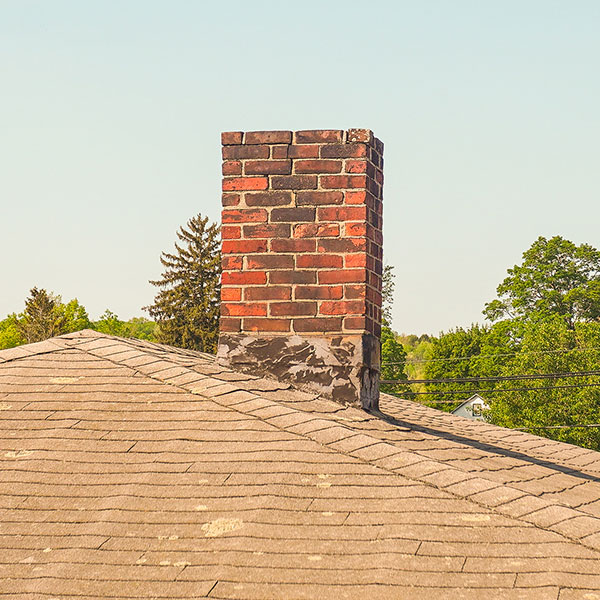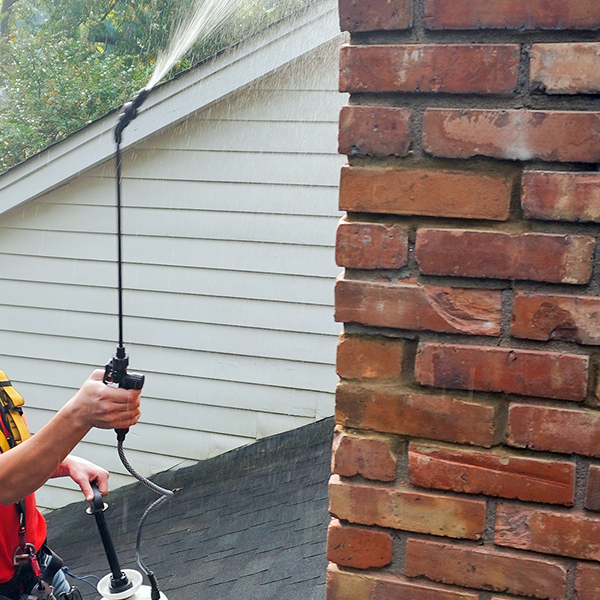Should You Use a Chimney Sealant
If you’ve owned a chimney for any length of time you’ve probably begun to realize that there is a lot more to chimney maintenance than sweeping out your firebox. One of the biggest enemies of every chimney is water and water damage. Knowledge of how to stay ahead of water damage and how to recover from water damage can be the best tool when it comes to extending the life of your chimney.
 How does water damage a chimney?
How does water damage a chimney?
Brick seems to be one solid mass, but a closer inspection will reveal that bricks are a porous material filled with tiny holes. Humidity, moisture of any kind, including rain and snow causes water droplets to collect in these holes, heat causes the water to evaporate but cold weather can cause it to freeze. If you’ve ever left glass in the freezer by accident, then you know what happens next. The water expands causing the brick to erode. This process conducted over and over again can lead to brick spalling. A condition where brick parts of the brick begin to flake off or crumble. As the water creates larger and larger channels it can eventually weaken the structure of an entire chimney or push its way indoors.
Chimney Sealants Help Prevent Water Damage
A chimney owner can do several things to help avoid water damage. Maintaining a well-built chimney crown and chimney cap can help divert water away from the chimney and flue but another way to keep a chimney strong is by applying a Chimney Sealant. Chimney sealants are usually made of silicone, polyurethane, or siloxane. These ingredients are known for their ability to provide waterproofing but still allow the material coated to expand and breathe. Things to keep in mind when sealing your chimney. There are always exceptions and chimneys with sealants can still experience water damage. Some experts discourage people from using waterproofing because if there is any moisture in the brick when it is applied, the water becomes trapped causing even more damage than before because it cannot evaporate. Using cheap products, those not meant for chimney brick or misapplying can be useless or hurt your chimney rather than help it. Should you use a chimney sealant? There are pros and cons when it comes to any project but the question of whether or not you should use a chimney sealant depends on
 * What type of sealant will be used
* What type of sealant will be used
* Will a certified professional be doing the job
If a high-quality sealant that is meant for chimneys is being used by a professional then your pros will more than likely outweigh your cons. It is when people who do not know what they’re doing use inferior products that trouble is bound to occur. Having your chimney sealed by a professional can help save your masonry, prevent cracks, and keep leaks from plaguing your home.
If you have any questions about sealing your chimney don’t hesitate to call the professionals here at Mercer. We know chimneys and we know how to keep them strong and efficient. Call us today or contact us online.


